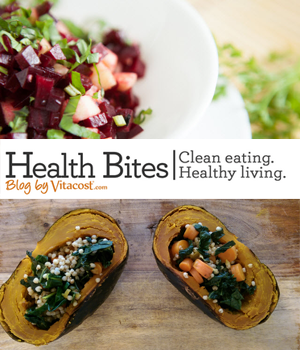Get Your Nutrients from a Dairy-Free Life
Many people are living the dairy-free lifestyle whether out of choice or because of food allergies or intolerances. This Vitacost guest post addresses ways to ensure you are getting the vital nutrients we often get from dairy. Thanks again Vitacost, very much appreciated!!
Guest blog by Liz Lotts
I scream. You scream. We all scream for…non-dairy ice cream! A dairy-free diet doesn’t have to mean skipping cookout classics like cheeseburgers, potato salad and ice cream. Though your favorite comfort foods contain milk or milk products, they aren’t totally off-limits thanks to the wide selection of dairy-free alternatives now available. But not all alternatives are created equal – some are more nutritious than others.
You probably know milk and milk products offer a range of essential vitamins and minerals, such as calcium and vitamin D. But did you know an eight-ounce glass of milk provides 18 percent of the daily value for vitamin B12 and 16 percent of the daily value for protein? When you’re lactose intolerant, have a milk allergy or simply prefer not to consume dairy, you could easily miss out on more than those American staples. Ensure your dairy-free diet doesn’t skimp on dairy’s nutrients with these guidelines:
Calcium – It’s an essential mineral that supports bone health and must constantly be replenished. Dairy may be the best known source, but there’s a pool of other foods that provide sufficient calcium. For instance, fortified foods and beverages can be dairy free and calcium rich. Because fortified soy milk has more calcium per cup (368 mg) than milk (306 mg), pour it over your cereal to start your day on a nutritious note. Still screaming for ice cream? Mix coconut milk with fruit, agave nectar, vanilla extract and silken tofu; then freeze in a cake pan until firm. You’ll have a decadent, calcium-packed, non-dairy dessert in no time – homemade, to boot!
Other dairy-free sources of Calcium include: dark leafy greens (kale, collard and turnip greens, bok choy), broccoli, ground sesame seeds (tahini), almonds, beans, and wild salmon (with the bones).
Vitamin D – A glass of milk provides more than 25 percent of the daily value for vitamin D to help support bone health and nervous system and immune function. That’s hard to top – unless you’re hooked on salmon (112 percent of the daily value in three ounces!) or swordfish. The truth is there aren’t many natural food sources of vitamin D, which may be why the U.S. government implemented a fortification program in the 1930s. Today, you’ll find many cereals and other ready-to-eat breakfast foods fortified with vitamin D. Just a few minutes of natural sun exposure can help boost vitamin D3 levels. However, your best– and the safest – dairy-free alternative may be a vitamin D supplement. (Tip: Vitamin D3, or cholecalciferol, is the optimal D variety due to its greater potency and greater long-term impact.)
Protein – Protein in milk is considered a “complete protein,” because it provides all the essential amino acids that help maintain the health of muscles and tissues. To meet these same standards, stick to lean meat and poultry, which can provide 30 grams of protein per three-ounce serving. When you’re craving a cheeseburger, choose the leanest ground beef, or spare some calories by making it a turkey burger. Instead of cheese, top your burger with sliced avocado or guacamole – you’ll get the same creamy texture without the dairy.
Other great sources of proteins can be from plants, check out this past Vitacost guest post: https://www.totalhealthcounseling.com/2012/pick-your-protein/
Vitamin B12 – This vitamin is essential for proper red blood cell formation. Vitamin B12 is naturally found mostly in animal products with levels in trout, tuna and clams topping the charts. However, if you’re allergic to fish or live a vegan lifestyle, these options aren’t appealing. To ensure you’re getting enough vitamin B12, you may want to start a daily supplement routine. Methylcobalamin is the preferred form of this vitamin and comes as a capsule, tablet – even a fruit-flavored lozenge.
This article has been provided by the folks at Vitacost.com. Offering more than just vitamins and supplements, Vitacost.com has a wide selection of over 35,000 organic, natural products for your healthy lifestyle. From organic foods and bath & beauty items to sports nutrition favorites and pet essentials, Vitacost.com has your needs covered – for less! Take your shopping list to Vitacost.com and take the cost out of healthy living. Vitacost.com is not affiliated with this blog and isn’t responsible for content outside of this article.



Great post! I exclusively use almond milk now, and I love that it has MORE calcium than cow’s milk. I’ll have to try that coconut ice cream recipe sometime.
Thank you Katie, Vitacost shares wonderful guests posts! Almond milk is a great choice. I’m a fan of coconut milk too, I’ve heard you can substitute for cow’s milk in any recipe!